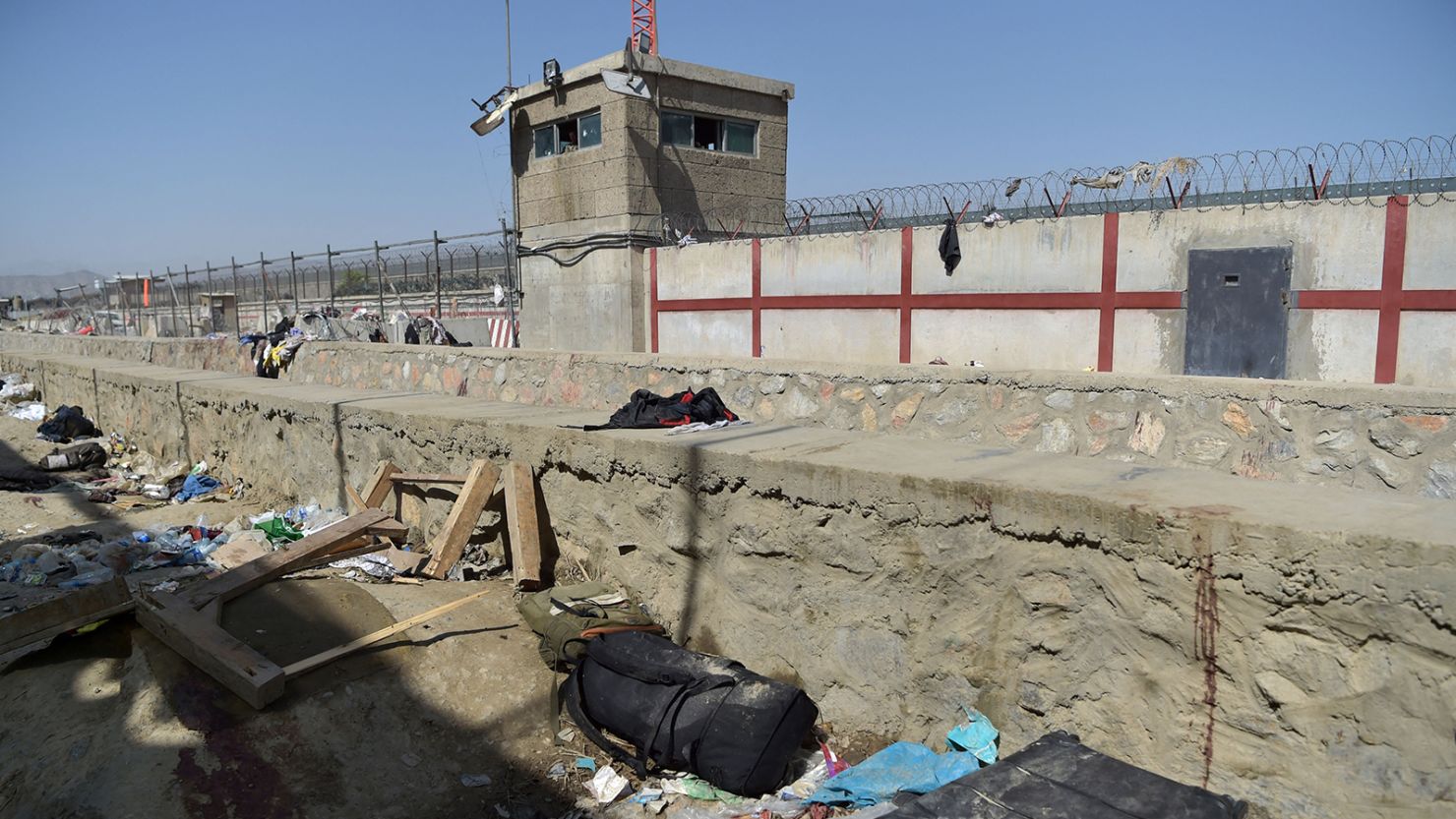The US military has completed an additional review of the deadly Abbey Gate bombing, which killed 13 service members and dozens more Afghan civilians during the 2021 American withdrawal from Afghanistan, CNN has learned.
The review began in June last year, when the commander of US Central Command, Gen. Erik Kurilla, directed the commander of US Army Central to review public testimony from service members about their experiences at Abbey Gate.
The review was officially announced by CENTCOM in September, just days after an emotional congressional roundtable in late August where family members of the troops killed made clear their anger at the investigation and what they saw as a lack of accountability over the chaotic withdrawal.
The results of the new review, which was conducted by US Army Central, have been briefed to both Defense Secretary Lloyd Austin and Kurilla, a US official and source familiar with the review said. Families of the 13 service members killed in the attack — 11 Marines, one soldier, and a Navy corpsman — are “currently being informed of the findings” of the review, a statement from CENTCOM on Tuesday said.
“Our focus continues to be on fulfilling our solemn obligations to the Abbey Gate Gold Star Families,” CENTCOM said.
In announcing the review last year, CENTCOM said it was meant to determine if public testimony “contained any new information not previously considered in the [US Army Central-led] investigation of 2021.”
Among those who gave public testimony was Marine Sgt. Tyler Vargas-Andrews, who told Congress last March that he saw the suicide bomber responsible for the attack before the explosion occurred.
“Over the communication network we passed that there was a potential threat and an IED attack imminent. This was as serious as it could get,” Vargas-Andrews said, adding that when he asked for permission to shoot, “our battalion commander said, and I quote, ‘I don’t know,’ end quote.”
That review by ARCENT was completed in August, CENTCOM said last year, adding that Vargas-Andrews, who had not been interviewed in the original investigation, “made statements about his experience that contained new information not previously shared by any other witness.”
In September, Kurilla formally ordered more interviews be done with service members and other personnel to ensure the command did its “due diligence with the new information that has come to light.”
US service members involved in the original investigation often had conflicting recollections about seeing the suspected suicide bomber; some recalled a vague description that could have matched many people in the crowd, others felt confident they’d seen the person in question.
CENTCOM said Tuesday that a team of 13 Army and Marine Corps service members conducted more than 50 interviews over a period of five months, including with 12 US troops who were not interviewed in CENTCOM’s original investigation.
“These interviews sought to determine whether those service members possessed any new information surrounding the attack, and, if so, whether that information would affect the findings of the initial Abbey Gate investigation, completed in November 2021,” the CENTCOM statement said.
The original investigation found, among other things, that the bombing was not preventable as the military carried out the chaotic evacuation from Afghanistan.
“Based on our investigation at the tactical level, this was not preventable and the leaders on the ground followed the proper measures, and any time there was an imminent threat warning they followed the proper procedures: they lowered their profile, they sought cover, and at times, they even ceased operations at the gate,” Brig. Gen. Lance Curtis, the lead investigator, said in February 2022.
